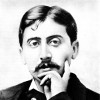“ All judgements, accordingly, are functions of unity in our representations, inasmuch as, instead of an immediate, a higher representation, which comprises this and various others, is used for our cognition of the object, and thereby many possible cognitions are collected into one. ”
Immanuel Kant, Critique of Pure Reason (1791). copy citation
| Author | Immanuel Kant |
|---|---|
| Source | Critique of Pure Reason |
| Topic | judgement unity |
| Date | 1791 |
| Language | English |
| Reference | |
| Note | Translated by J. M. D. Meiklejohn |
| Weblink | http://www.gutenberg.org/files/4280/4280-h/4280-h.htm |
Context
““ All bodies are divisible, ” our conception of divisible applies to various other conceptions; among these, however, it is here particularly applied to the conception of body, and this conception of body relates to certain phenomena which occur to us. These objects, therefore, are mediately represented by the conception of divisibility. All judgements, accordingly, are functions of unity in our representations, inasmuch as, instead of an immediate, a higher representation, which comprises this and various others, is used for our cognition of the object, and thereby many possible cognitions are collected into one. But we can reduce all acts of the understanding to judgements, so that understanding may be represented as the faculty of judging. For it is, according to what has been said above, a faculty of thought.”
source


